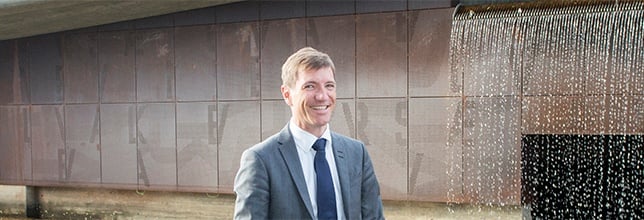VAT registration obligations in Norway for non-established suppliers
 ‹ Back to the articles
‹ Back to the articles
Non-established suppliers of services are often not aware of their VAT obligations in Norway. In the EU, such services are to a large extent subject to a reverse charge procedure, whereby VAT is calculated by the customer. This is not the same in Norway.
VAT related to services performed physically in Norway should be accounted for by the supplier, even in B2B transactions. Foreign established suppliers are therefore obliged to register for VAT in Norway and include Norwegian VAT on their invoices when they supply services here.
Typically this will be an issue in two different scenarios:
Supply with installation
Large equipment and parts of building are often supplied with installation, as so-called turn key deliveries. The foreign supplier will send people to Norway to perform the installation, and from a contractual point of view delivery of the goods will take place after the goods have been installed, inspected and approved by the customer.
In the EU, supplies with installation B2B will most often be subject to a reverse charge procedure, whereby the customer accounts for the VAT. This is not the case in Norway, where the supplier will be obliged to register for VAT and include Norwegian VAT on his invoice to the customer. The supplier must also act as importer of record and pay the import VAT.
Lease of goods
In Norway, place of supply for leasing services will be the place where the leased goods are physically present in the leasing period. There is no reverse charge procedure applicable for such supplies, and a foreign established lessor will therefore have to register for VAT in Norway if a lessee leases a piece of equipment to be used in Norway.
The lessor should also act as importer of record and pay the import VAT.
What is the problem?
Since the rules in Norway are different than in most other European countries, foreign suppliers are often not aware of their obligations. This typically creates problems when it comes to deduction of import VAT. As the foreign company is not registered in Norway, the customer will import the goods. The right to deduct the import VAT in the customer’s VAT return will however be denied if a tax audit is performed, as the tax authorities will be of the opinion that it is the foreign company that should have acted as importer of record and made the deduction.
I recommend foreign companies that are going to supply services in Norway to do an assessment up front, and register for VAT if necessary. That is much easier and cheaper than correcting the invoices and reporting afterwards.

Per Kirknes
Mitt navn er Per Kirknes og jeg jobber som advokat i PwC. Mitt arbeidsfelt er merverdiavgift og toll, med særlig fokus på internasjonale forhold og cross border transactions. Jeg har arbeidet i PwC siden 2010, og har også erfaring fra tollmyndighetene.
My name is Per Kirknes, and I am an Attorney at Law working in the indirect tax team in PwC Oslo. I specialize in international trade with goods, including domestic and international VAT issues, as well as customs and excise duties. My work is often related to cross-border transactions, including structuring of supply chains and analyses of intra-group transactions. I also provide advice related to specific customs issues like valuation, origin, classification and customs procedures. I have been with PwC since 2010. Prior to that I worked ten years with development of the Norwegian customs legislation in the Directorate of Customs and Excise.
Leave a comment